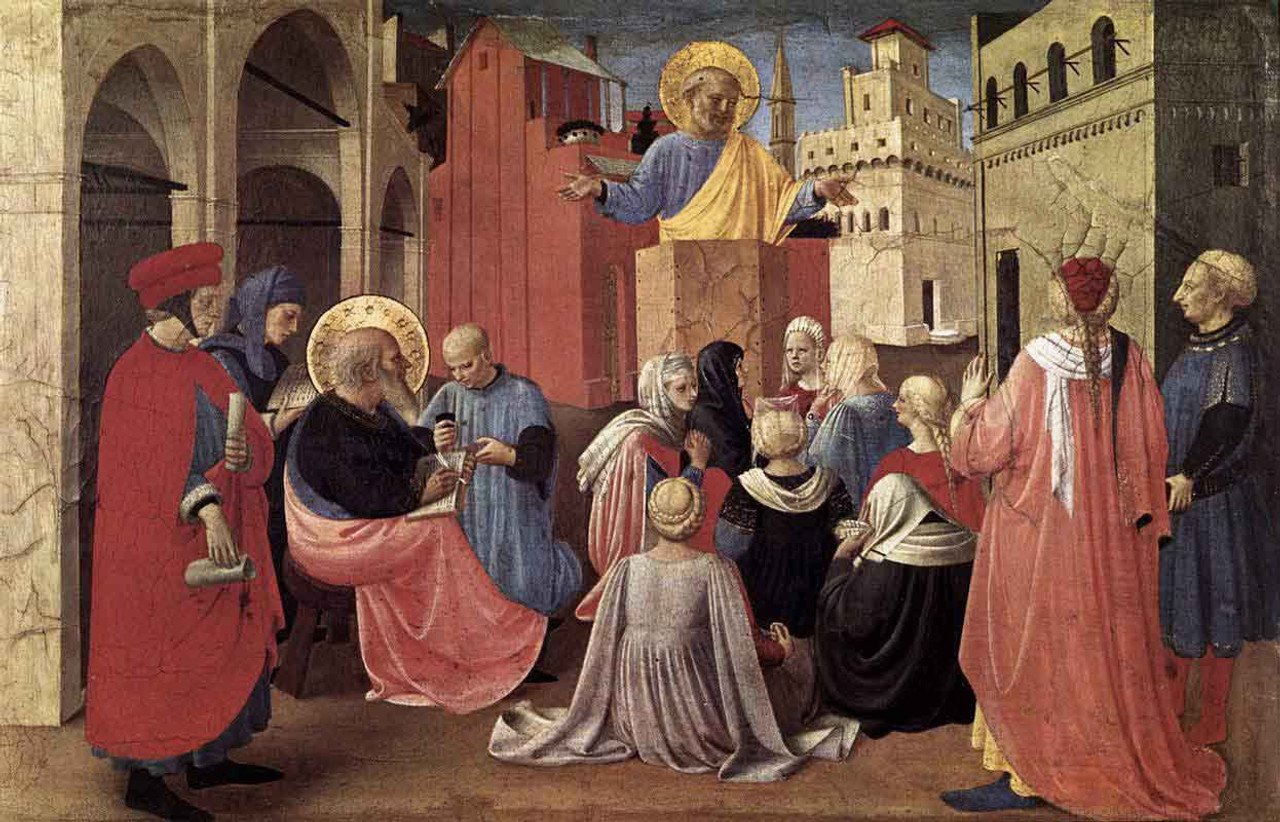Reflection for the 6th Sunday of Easter
Entrance Antiphon for the 5th Sunday of Easter
Proclaim a joyful sound and let it be heard;
proclaim to the ends of the earth:
The Lord has freed His people, alleluia.
Today’s entrance antiphon continues the theme we have seen in previous weeks of joyful celebration in God’s salvation, but it adds to it a note of proclamation. Not only are we to “sing a new song to the Lord, for He has worked wonders” and “has shown His deliverance,” as we sang last week; we are also to “proclaim” that work of deliverance “to the ends of the earth.” This progression makes sense, because when we experience God’s saving work in our lives and ponder it in our hearts, this naturally overflows into joyful, loving praise and thanksgiving, and then into sharing the good news with others.
We see this dynamic at work in today’s first reading, with Philip’s proclamation of the gospel to the Samaritans. After Stephen’s stoning, persecution broke out in Jerusalem, and the community of believers was scattered, with the exception of the apostles. It would have been understandable if the dispersed believers had decided to lie low in the hope that the trouble would soon blow over, but instead, wherever they went, they proclaimed the good news of Jesus Christ. Thus Philip the deacon, coming to the region of the Samaritans, proclaimed Christ to them and healed their sick, and so shared with them the joy of the gospel.
Philip was able to share this joy with those he met, even in a time of trial, because he knew the reason for his hope. He knew that he had an incomparable, everlasting inheritance kept in heaven for him. He knew that through Christ’s death and resurrection we come to share in God’s own life, and that we have even now received the gift of the Spirit as a foretaste of this future blessed life. As part of the community of believers in Jerusalem, he had “devoted [himself] to the apostles’ teaching and fellowship, to the breaking of bread and the prayers” (Acts 2:42) and so had kept his attention fixed on the great things that God had done for us in Christ. The resurrected Lord had taught the early Church that the apparent disaster of His shameful execution was actually the means foreordained by God by which He was to enter into His glory, and so Philip and the other early Christians were able to rejoice when they were counted worthy to suffer dishonor for the sake of Jesus’s name. They knew that it is by sharing in His suffering that we come to share in His glory.
This was how Philip was able to share the joy of the gospel, even in a time of trial. May we learn to do likewise.
